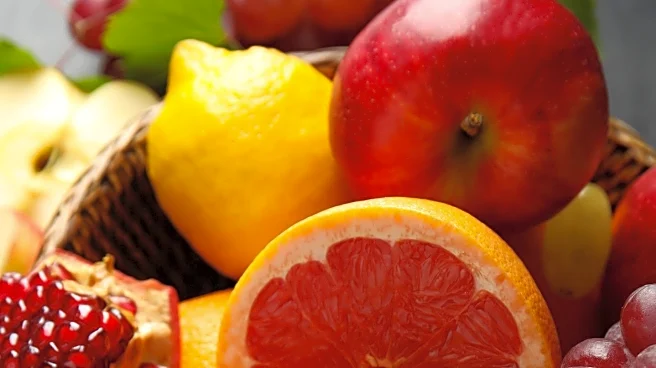What is the story about?
What's Happening?
A recent study published in the Journal of Clinical Hypertension has identified several fruits that may help lower blood pressure. The study involved over 2,200 participants aged 50 to 65, who monitored their blood pressure at home and reported their fruit consumption. The findings suggest that frequent consumption of fruits such as bananas, apples, pears, and citrus fruits is associated with significantly lower systolic blood pressure. Dietitians emphasize the importance of incorporating whole foods and antioxidant-rich fruits into the diet to manage blood pressure effectively. Key nutrients like potassium in bananas and vitamin C in kiwis and grapefruits play a crucial role in relaxing blood vessels and improving blood flow.
Why It's Important?
High blood pressure is a significant health concern linked to severe complications such as heart attacks and strokes. The study's findings underscore the potential of dietary changes in managing blood pressure, offering a natural and accessible approach to health improvement. By promoting the consumption of specific fruits, individuals can potentially reduce their reliance on medication and improve their overall cardiovascular health. This research highlights the broader impact of diet on public health and the importance of preventive measures in reducing healthcare costs and improving quality of life.
What's Next?
As awareness of the benefits of fruit consumption grows, healthcare providers may increasingly recommend dietary changes as part of a comprehensive approach to managing high blood pressure. Further research could explore the specific mechanisms by which these fruits affect blood pressure and identify additional dietary strategies for cardiovascular health. Public health campaigns may also focus on educating the population about the importance of fruit intake and other lifestyle modifications to prevent hypertension.
















